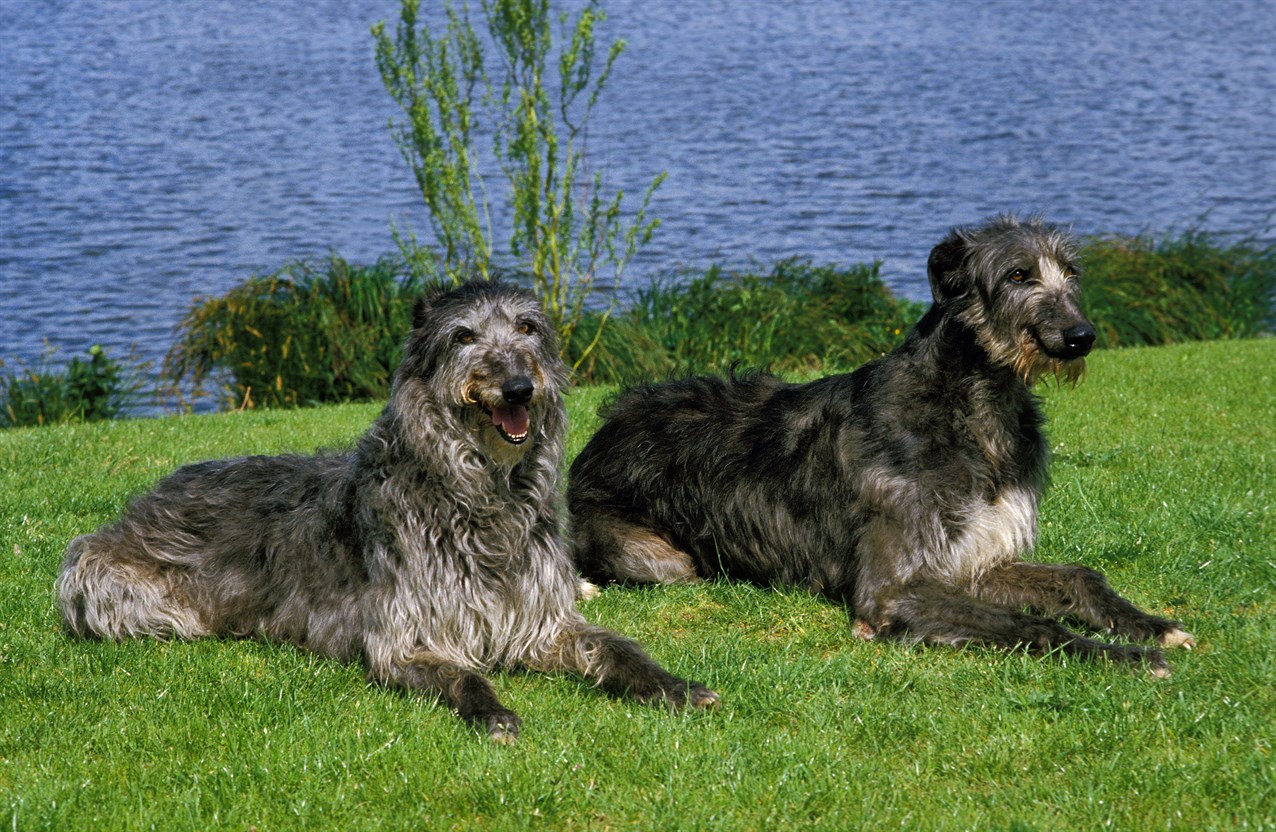Feeding the Deerhound: Sustaining the Majestic Appetite

Feeding a Deerhound involves understanding their unique dietary needs, which are influenced by their large size, activity level, and overall health. Proper nutrition is essential to support their well-being and ensure they maintain their majestic stature.
Dietary Requirements
- High-Quality Dog Food: Deerhounds benefit from a high-quality commercial dog food that is appropriate for their age (puppy, adult, or senior) and size. Look for brands that list a named protein source as the first ingredient, such as chicken or lamb. Avoid foods that contain excessive fillers and artificial additives.
- Protein: Protein is a crucial component of a Deerhound's diet. Look for dog foods with a protein content of around 20-25%. Proteins help maintain muscle mass and overall health.
- Fat: Healthy fats provide essential fatty acids and calories to support energy levels and coat health. A fat content of around 10-15% is generally suitable for Deerhounds.
- Carbohydrates: While dogs don't require carbohydrates as a primary nutrient, they can be a valuable source of energy. Look for whole grains like brown rice or oats, which are easier for dogs to digest than highly processed grains.
- Fibre: Fibre aids in digestion and helps prevent constipation. A moderate amount of fiber, around 3-5%, is recommended in their diet.
- Minerals and Vitamins: A well-balanced dog food should contain essential minerals and vitamins to support overall health. However, it's essential not to over-supplement, as excessive amounts of certain nutrients can be harmful.
Feeding Schedule
Establishing a regular feeding schedule is vital for Deerhounds. Divide their daily food intake into two or three meals to help prevent bloat, a condition to which large and deep-chested breeds like Deerhounds can be prone. Avoid feeding immediately before or after exercise to reduce the risk of bloat.
Avoid Overfeeding
While it's crucial to provide adequate nutrition, overfeeding can lead to obesity, which is especially detrimental for large breeds like the Deerhound. Monitor their weight and adjust their portion sizes as needed to maintain a healthy body condition. Consult with your veterinarian if you have concerns about your dog's weight.
Special Considerations
- Puppy Diet: Deerhound puppies grow rapidly and require a specially formulated puppy food to support their development. Puppy food typically has higher protein and calorie content.
- Senior Diet: As Deerhounds age, their metabolism may slow down, and they may become less active. Transition to a senior dog food that is lower in calories but still provides essential nutrients.
- Dietary Allergies and Sensitivities: Some Deerhounds may have food allergies or sensitivities. If you suspect this, work with your veterinarian to identify and manage specific dietary needs.
Hydration
Always provide access to fresh, clean water. Deerhounds, like all dogs, need to stay well-hydrated to support their bodily functions and overall health.
In conclusion, feeding a Deerhound requires careful consideration of their unique dietary needs, including size, age, and activity level. Providing a balanced and nutritious diet, monitoring portion sizes, and maintaining a regular feeding schedule are essential to ensure their health and vitality. Consulting with a veterinarian can help you tailor a diet plan that meets your Deerhound's specific requirements, allowing them to enjoy a healthy and happy life.
Deerhound puppies for sale
- Find Deerhound puppies for sale in ACT
- Find Deerhound puppies for sale in NSW
- Find Deerhound puppies for sale in NT
- Find Deerhound puppies for sale in QLD
- Find Deerhound puppies for sale in SA
- Find Deerhound puppies for sale in TAS
- Find Deerhound puppies for sale in VIC
- Find Deerhound puppies for sale in WA